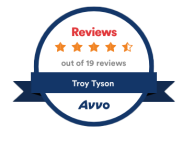Loaning money to another person is a great act of trust. When a person turns over an amount of their personal resources to another individual, it comes with an expectation that repayment will be made in a timely manner, and in full amount. Sometimes, however, things do not go as planned. What can be done when money that you are owed is not being paid back?
If you are owed money from someone, there are several options you can consider. The first – as is the case in many legal matters – is to reach out to the other party and try to communicate with them. Perhaps there was a misunderstanding regarding the debt. Or, perhaps the indebted party has simply hit a rough financial patch, and fully intends to pay soon. Before proceeding to more aggressive legal stages, it is always best to try to work something out with the other party, so that the time, energy, and money expended on a full lawsuit might be avoided. If you’re open to negotiating, and the other party knows that you are serious about taking legal action, then maybe a solid payment plan can be put into place, which would be to everyone’s satisfaction.
There is the possibility, however, that such conversations will not be fruitful, and your efforts to work something out with the debtor will lead to no results. In that case, legal action will be required. Many times, the most effective (and often least expensive) first step to take in initiating legal action is to hire an attorney, and request that, for their first task, they simply write a letter on your behalf. Very often, when a debtor receives a letter from an attorney, specifying the details of the debt owed, and laying out the possibility of further legal action, the debtor will snap into action and be much more cooperative. Also, because attorneys can typically draft and send these letters rather quickly, the cost to the creditor may be fairly minimal.
Sometimes, however, the debtor will refuse to budge even upon receipt of an attorney letter. If all of your pre-lawsuit efforts have failed to produce any action on the part of the debtor, then your next course of action would be to actually file a lawsuit. If the debt owed is in the low thousands, then you will want to consider filing in small claims court. Small claims court procedures are much simpler than civil court proceedings, and the cost to bring a claim is typically low. The rules of evidence are also relaxed in small claims courts, making it easier for a plaintiff with little knowledge of the law to argue their case to a judge or jury. Finally, in most instances, a plaintiff does not need an attorney to proceed in small claims court (although they do have the option to retain one if desired). This often makes the small claims lawsuit much cheaper to try than the civil court option. However, be sure to check your local small claims court rules to determine if your type of case is eligible, and also to make sure that the amount you are asking for is within the court’s requirements, as different courts have different ceilings on the amount that can be pursued, with most courts capping the amount at somewhere between $5,000 – $10,000 per lawsuit.
If the debt owed to you is higher than those allowed in small claims courts, then you will need to pursue the debt in civil court. Under those circumstances, you will need to be represented by an attorney, and the standard rules of evidence and procedure will apply. After you file your complaint in civil court, the debtor will be served with notice of the complaint, and a trial or hearing date will be set. If the debtor does not show up for trial, it is likely that you will be granted a default judgment. If the debtor does appear for trial, then both sides will be permitted to present evidence regarding the disputed debt, and the court will issue a ruling.
If you win at trial, you will receive an order from the court, known as a “judgment.” However, merely winning your trial and receiving a judgment in your favor does not guarantee that you will receive any actual money as a result. Being issued a judgment from the court only means that the court has found that the debt is legitimate, that the debtor does in fact owe you money, and that you have a right to take certain additional steps to try to collect the debt from the person who owes you. The court, however, is not a collection agency, and therefore, any actual steps undertaken to collect the debt after the trial has ended will need to be initiated and managed by you.
Having a judgment in hand, however, does give you a great deal of power that you would not otherwise have. With a judgment in place – and provided you act within legal bounds – you will be able to go after a person’s wages, bank accounts, and other assets, to ensure that the debt owed to you is paid. Additionally, if you are lacking information about the debtor’s assets, or they are claiming that they don’t have any, then you will have the power, as a result of your court judgment, to bring them into court periodically through a method called a “proceedings supplemental,” or a “pro sup.” A pro sup allows you to force the debtor to come to court on a periodic basis, so that you (and the court) can assess their financial situation, take stock of their assets, and determine whether any additional money can be paid towards the debt they owe to you. Obtaining a judgment from the court will give you a great deal of power and flexibility in the quest to collect your debt; however, the methods and restrictions involved in the post-judgment process can be fairly complex, so it would be wise to consult with an attorney before proceeding down this path.
Collecting an unpaid debt can be frustrating and tedious. However, with the right approach, and by properly using the available legal tools, you can get back what is owed to you.
Contact us if you have any additional questions or need assistance with a legal matter.
NOTE
This article primarily references Indiana law. Please check the laws of your local jurisdiction if you live in another state.
The articles in this blog are for informational purposes only. No attorney-client relationship is established through the publication of these articles.







